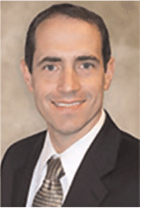Water planning strategies to accommodate uncertain development plans
Stephen Goodwin A , Nathan Zaugg A , Ronald Cass A and Ken Carlson BA MWH Global.
B Department of Civil and Enivronmental Engineering, Colorado State University.
The APPEA Journal 55(2) 413-413 https://doi.org/10.1071/AJ14048
Published: 2015
Abstract
Water management and water re-use strategies play an important role in minimising the costs and risks associated with the development of an unconventional oil and gas field. At the same time, an effective water management strategy is essential to maintain a social license to operate and minimise the social and environmental impacts associated with development.
Most companies, however, are forced to make water decisions based solely on the flexibility of a water management strategy that can accommodate changes in a development plan. In most situations, this is the most expensive option with the highest environmental and social risk.
MWH Global has developed a streamlined water infrastructure modelling approach that gives users the ability to quickly visualise a variety of water management and water re-use strategies for different development plans. The user can quantitatively compare key outputs (such as costs, flexibility, probability of a traffic accident and CO2 emissions) for different potential scenarios.
The modelling approach is applied to an integrated development plan to compare costs and other key outputs for several water management and water re-use strategies in a basin. The ability to quickly model water management and water re-use strategies for a variety of development plans reduces the time and cost required, while providing more accurate and flexible water management and water re-use strategies.

Stephen Goodwin is an environmental engineering at MWH and PhD graduate in environmental engineering from Colorado State University. His dissertation, Water Management and Reuse Strategies for Unconventional Oil and Gas Fields, focused on optimising water re-use strategies in unconventional oil and gas fields. Stephen has co-authored several publications relating to water use for unconventional oil and gas development and has developed a software models to reduce the time required to predict water quantity and quality for an unconventional oil and gas field for a range of scenarios. He received a BS in mechanical engineering from the University of Colorado, Boulder, and an MS and a PhD in civil engineering from Colorado State University. |

Nathan Zaugg is the global industrial wastewater practice leader at MWH. He is a registered professional engineer with 12 years of experience in water treatment and management. Nathan has provided water treatment design services for several unconventional oil and gas development projects. He has been involved in more than 85 water and wastewater treatment projects, while completing preliminary work on various aspects of an additional 120 projects under various stages of design. His technical expertise includes intake design, sediment processes, solids handling and treatment and process validation. He received a BS and an MS in civil and environmental engineering from Utah State University. |

Ronald Cass is a senior technical project lead at MWH and has more than 30 years of experience in water treatment performing preliminary and final design for pump stations; water and wastewater conveyance lines; produced water, surface water, groundwater and seawater desalination treatment; sewage treatment facilities; and chemical feed, storage and transfer systems. His experience covers all phases of project development from inception through design, construction and start-up/operation. He received his BS in civil engineering from the Rensselaer Polytechnic Institute. |

Kenneth Carlson is an associate professor of civil and environmental engineering at Colorado State University with more than 20 years of experience in water-related issues. He is the director of the Center for Energy Water Sustainability in the CSU Energy Institute and, in this role, directs research related to optimising water use in the oil and gas industry. His present projects include infrastructure modelling, recycling technologies, real-time ground water monitoring and water quality interactions with frac fluids. He received a BS in chemical engineering from the University of Wisconsin, an MS in civil engineering from Colorado State University and a PhD in environmental engineering from the University of Colorado, Boulder. |
References
Bai, B., Goodwin, S., and Carlson, K. (2013). Modeling of frac flowback and produced water volume from Wattenberg oil and gas field. Journal of Petroleum Science and Engineering 108, 383–92.Shaffer, D.L., Arias Chavez, L.H., Ben-Sasson, M., Romero-Vargas, Castrillon, S., Yip, N.Y., and Elimelech, M. (2013). Desalination and reuse of high-salinity shale gas produced water: drivers, technologies, and future directions. Environmental Science & Technology 47, 9,569–83.


